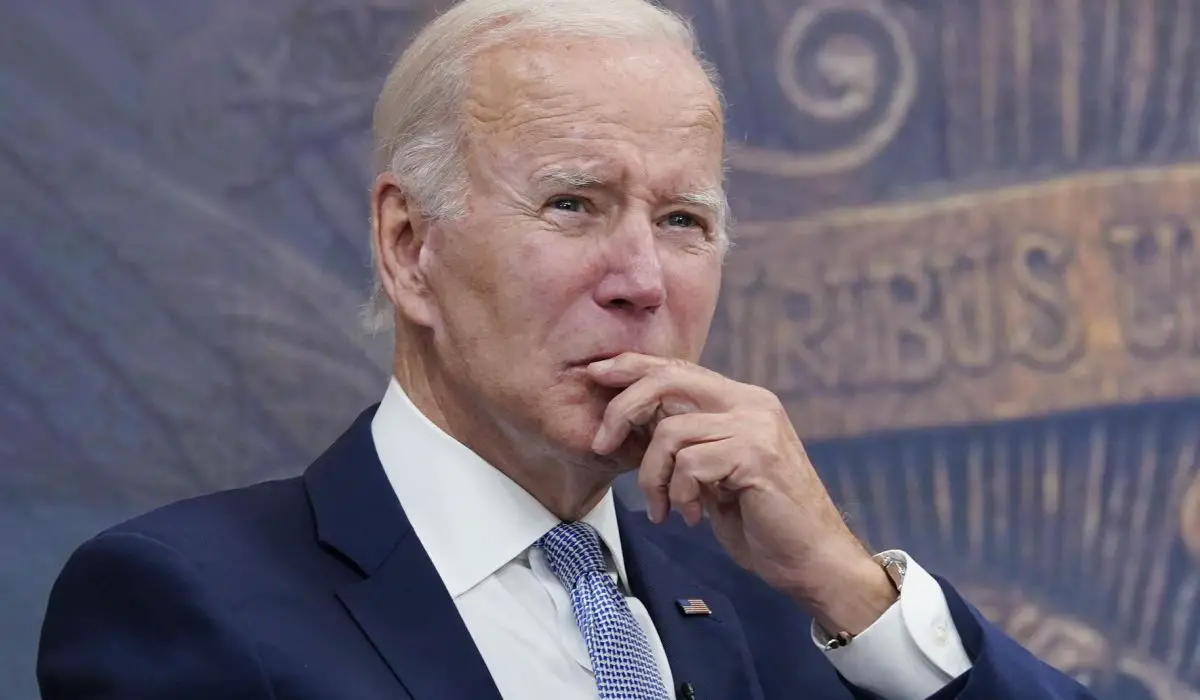If there’s one thing American families have been begging for, it’s higher taxes to combat the weather in the name of reducing inflation or whatever Biden thinks is happening.
The roadshow selling this $700 billion spending bill is like a mishmash of the worst progressive ideas crammed into one legislative vessel that someone spray-painted “Inflation Reduction Act” on the side of as a bad joke.
This boat barely floats, isn’t going where you want to go, and certainly does nothing with respect to reducing inflation, it might actually make it worse.
As a result of the boondoggle, Biden has been reduced to assuring Americans that they’ll get to participate in meeting his climate change goals by, um, paying more in taxes and having the joy of spending an average of $66,000 on an electric vehicle in the midst of record inflation:
The Inflation Reduction Act will position America to meet my climate goals, saving families hundreds of dollars a year on energy costs.
And for families that take advantage of clean energy and electric vehicle tax credits – they could see more than twice the savings.
— President Biden (@POTUS) August 16, 2022
The average family taking advantage of “clean energy and electric vehicle tax credits” is spending an average–average–of $66,000 on an electric vehicle. Most are much higher than that, of course.
For the average family on an average income watching gas and groceries eat away a monthly budget like Biden devouring a pint of Ben & Jerry’s, a clean energy electric vehicle credit is less of a joke and more of an eff-you.
While American families are enjoying supporting Biden’s climate change agenda, they’ll also be enjoying new taxes:
The Inflation Reduction Act sent to President Biden’s desk will end up forcing working-class Americans to pay billions of dollars in new taxes, according to the nonpartisan Congressional Budget Office.
An analysis by the CBO estimates those earning less than $400,000 — the group on which Biden promised not to raise taxes — will pay an estimated $20 billion more in taxes over the next decade as a result of the Democrat-pushed $740 billion package, which also sets aside $80 billion to hire 87,000 IRS agents.
A wonderful selling point to push hard before the midterms for Biden and his fellow Democrats trying to convince voters they’re working overtime to reduce inflation and reduce the burden on working families.
Calling something the “Inflation Reduction Act” when it doesn’t actually reduce inflation is a joke in itself. Assessments of the bill see no positive effect in the short term or long term, so what inflation is it reducing?
Proponents of the bill argue that it’s the effect of inflation that’s being reduced, not the actual price indexes. If you continue spending the same amount on your health insurance next year as you are this year, well then, they’ve “reduced” inflation. It’s a smokescreen.
Polling shows that Americans’ view on things like “climate change” tends to vary with how the economy is doing. By that measure, a desire to address climate change “right now” has waned as gas and grocery prices drain wallets coast to coast:
With issues like the economy and inflation, crime, and the war in Ukraine weighing most on Americans’ minds, the percentage who think climate change needs to be addressed right now has dipped some since one year ago.
This dip in urgency, while not steep, is widespread. Fewer people across age, race, and education groups, as well as partisan stripes, think climate change needs to be addressed right away than thought so a year ago. Still, most Americans do think it’s an issue that needs to be addressed now or least in the next few years.
The real story behind Biden’s big spending bill that doesn’t reduce inflation but is called the Inflation Reduction Act is to placate a weary Democratic base before the midterms and nothing more.
It’s a “see, we did something” kind of bill to pep up the rank-and-file and give them something to vote FOR rather than living in the Biden-induced malaise of accomplishing nothing while the economy sinks.
With that all said, we’re all deputized soldiers now in Biden’s climate army because there’s nothing old men enjoy more than complaining about the weather.
Donate Now to Support Election Central
- Help defend independent journalism
- Directly support this website and our efforts
